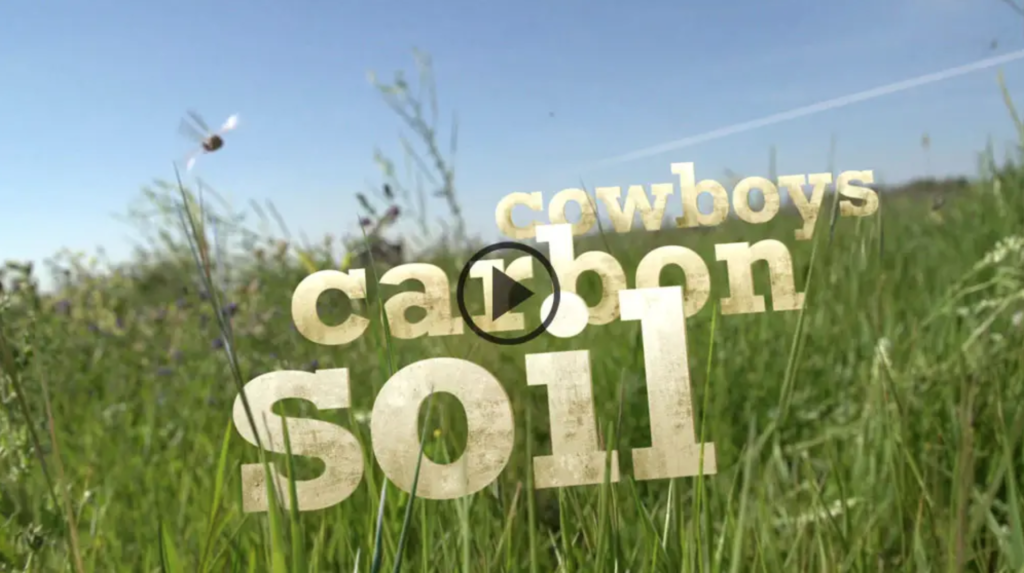Call of the Reed Warbler

Charles Massy’s Call of the Reed Warbler beautifully captures his personal journey from conventional to regenerative farmer, with detours to learn about many of the great regenerative minds who have helped him along the way.
Profile of good stewardship: the Rafter F Cattle Company (2001)

This case study of a ranch in New Mexico, USA by the Quivira Coalition features Rafter F Ranch—a 4,779-hectare property in San Jon, New Mexico. Net income per acre grew from $5.84 in 1984 to $22.5 in 1992.
Soil Carbon Sequestration in Grazing Lands: Societal Benefits and Policy Implications

This paper from 2010 is a compilation of previous studies on grazing lands and carbon drawdown which themselves date from the 1990s. It shows that grazing lands/rangelands are major stores of terrestrial carbon, occupying approximately 3.6 billion hectares and accounting for about one-fourth of potential carbon (C) sequestration in world soils. Drawdown rates via grazing and on restored semi-arid savanna are reported to be as high as 2.75 tons per hectare per year.
Biodiversity as an organizing principle in agroecosystem management: Case studies of holistic resource management practitioners in the USA

Twenty-five farmers and ranchers using Holistic Resource Management (HRM) were interviewed on the role of biodiversity in the sustainability of their operations. Since HRM began influencing their decisions, all of the interviewees reported positive changes in some of the ecosystem processes on their farms or ranches, 95% perceived increases in biodiversity (particularly with respect to plants), 80% perceived increase in profits from their land, and 91% reported improvements in their quality of life because of changes in their time budgets.
Linking Ecosystem Health Indicators and Collaborative Management: A Systematic Framework to Evaluate Ecological and Social Outcomes

Although collaborative management has gained popularity across the United States as a means of addressing the sustainability of mixed-ownership landscapes and resolving persistent conflicts in public lands management, it has nonetheless generated skepticism because frameworks to assess on-the-ground outcomes are poorly developed or altogether lacking. The holistic ecosystem health indicator, a promising framework for evaluating the outcomes of collaborative processes, uses ecological, social, and interactive indicators to monitor conditions over time.
From the Ground Up: Holistic Management and Grassroots Rural Adaptation to Bovine Spongiform Encephalopathy across Western Canada

This study examines the impacts of and adaptive responses of producers in western Canada to bovine spongiform encephalopathy (BSE), which has adversely affected farmers and rural communities around the world. In particular, it explores how holistic management (HM), with its combined focus on environmental, social, and economic sustainability, might mitigate the effects of BSE.
Adaptation and change in Queensland’s rangelands: Cell grazing as an emerging ideology of pastoral-ecology

This paper discusses the adaption of “cell grazing” in Australia, which it describes as an “ecologically integrated paradigm.” From the Abstract: “It is argued that cell grazing is, at present, a marginal activity that requires an ideological and cultural shift, as well as an investment in new infrastructure; however, current cell grazing activities may also demonstrate that beef grazing has the potential to be both economically and environmentally sustainable.”
Steps toward Sustainable Ranching: An Emergy Evaluation of Conventional and Holistic Management in Chiapas, Mexico

Members of a holistic ranching ‘‘club” in the Frailesca region of Chiapas, Mexico have moved away from decades of conventional management by eliminating the use of burns and agrochemicals believed to decrease the biodiversity and forest cover of ranch lands, and by implementing sophisticated systems of rotational grazing and diversifying the use of trees. Holistic ranches were found to have double the “emergy” (embodied-energy or “energy memory”) sustainability index values of conventional ranches. The results from this study show that productivity can be maintained as the sustainability of rural dairy ranches is increased, and that local knowledge and understanding of the surrounding ecosystem can drive positive environmental change in production systems.
Managing the grazing landscape: Insights for agricultural adaptation from a mid-drought photo-elicitation study in the Australian sheep-wheat belt

This paper compares the landscape perceptions of HM graziers with those of more conventional graziers. HM graziers described their use of adaptive farm management techniques to gain outcomes for production and ecosystems alike, demonstrating a system-based understanding of their farms conducive to farming successfully under increased climate variability.
Soil Carbon Cowboys

This short film by Peter Byck follows producers who have taken the leap from conventional to regenerative agriculture.
